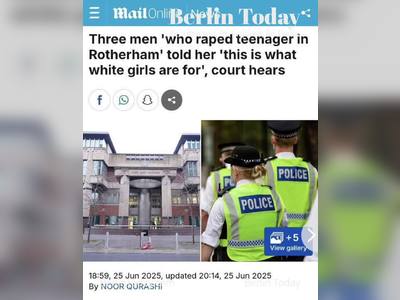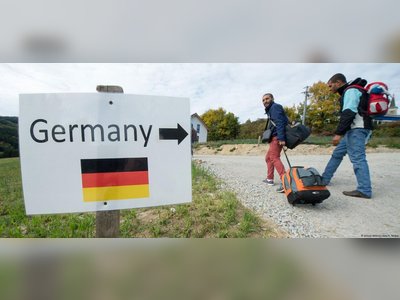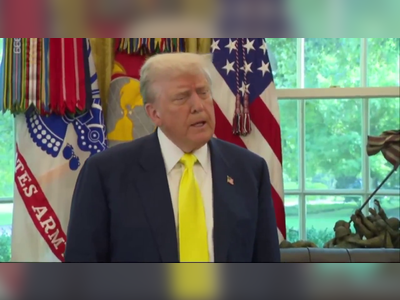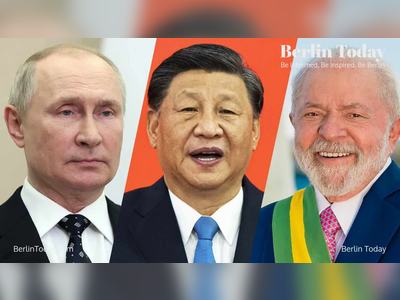
Friedrich Merz Elected as Chancellor of Germany in Second Voting Round
The CDU leader succeeds Olaf Scholz after a historic first-round setback, aiming to rejuvenate the German economy and address migration issues.
On May 6, 2025, Friedrich Merz was elected as the tenth Chancellor of the Federal Republic of Germany during a second voting round in the Bundestag.
Merz, the leader of the Christian Democratic Union (CDU), secured 325 votes in a secret ballot, surpassing the required majority of 316 votes.
The CDU/CSU and the Social Democratic Party (SPD), together holding 328 seats in the Bundestag, collectively paved the way for his election.
In a surprising turn of events, Merz failed to gain the necessary votes in the first voting round, marking an unprecedented moment in German political history.
It was the first time a designated Chancellor, after a successful coalition negotiation, was unable to win the Bundestag vote post-election.
Following his election, Bundespräsident Frank-Walter Steinmeier awarded Merz the certificate of appointment at Schloss Bellevue, formally placing him in office.
Merz expressed gratitude upon taking the position, stating, "I thank you for your trust, and I accept the election." He returned to the Bundestag to take the oath of office, with the formal swearing-in of 17 ministers scheduled to follow.
Merz's cabinet comprises ten men and eight women, with both CDU and SPD contributing seven ministers each, alongside three from the Christian Social Union (CSU).
The new Deputy Chancellor and Minister of Finance, Lars Klingbeil, will be essential to the government's success, particularly given the critical nature of their collaboration during coalition negotiations.
Expectations for Merz's administration are considerable, particularly in light of Turkey's recent invasion of Syria and the European Union's concerning economic climate.
Domestically, there is a strong hope for revitalizing Germany's sluggish economy.
Internationally, European allies are anticipating a more decisive role for Germany following a notable shift in U.S. foreign policy under former President Donald Trump, especially concerning challenges posed by Russia's actions and competition from China.
In matters of immigration, incoming Interior Minister Alexander Dobrindt has promised to implement immediate measures to curb irregular migration, including increased border controls and enhanced deportations.
Dobrindt stated he would announce the first decisions following his assumption of office.
Merz is also slated to conduct preliminary diplomatic visits to neighboring countries, notably France and Poland.
Anticipation surrounds his discussions with Polish Prime Minister Donald Tusk, especially given Poland’s apprehensions regarding Germany’s border control intentions.
Furthermore, engagements with French President Emmanuel Macron will focus on strengthening European sovereignty.
Neither the Green Party nor the Left Party has shown support for Merz’s chancellorship.
Representatives from both parties clarified that their involvement in facilitating a swift second vote was not an endorsement of Merz’s policies, firmly stating their opposing viewpoints on his potential leadership.
Merz, the leader of the Christian Democratic Union (CDU), secured 325 votes in a secret ballot, surpassing the required majority of 316 votes.
The CDU/CSU and the Social Democratic Party (SPD), together holding 328 seats in the Bundestag, collectively paved the way for his election.
In a surprising turn of events, Merz failed to gain the necessary votes in the first voting round, marking an unprecedented moment in German political history.
It was the first time a designated Chancellor, after a successful coalition negotiation, was unable to win the Bundestag vote post-election.
Following his election, Bundespräsident Frank-Walter Steinmeier awarded Merz the certificate of appointment at Schloss Bellevue, formally placing him in office.
Merz expressed gratitude upon taking the position, stating, "I thank you for your trust, and I accept the election." He returned to the Bundestag to take the oath of office, with the formal swearing-in of 17 ministers scheduled to follow.
Merz's cabinet comprises ten men and eight women, with both CDU and SPD contributing seven ministers each, alongside three from the Christian Social Union (CSU).
The new Deputy Chancellor and Minister of Finance, Lars Klingbeil, will be essential to the government's success, particularly given the critical nature of their collaboration during coalition negotiations.
Expectations for Merz's administration are considerable, particularly in light of Turkey's recent invasion of Syria and the European Union's concerning economic climate.
Domestically, there is a strong hope for revitalizing Germany's sluggish economy.
Internationally, European allies are anticipating a more decisive role for Germany following a notable shift in U.S. foreign policy under former President Donald Trump, especially concerning challenges posed by Russia's actions and competition from China.
In matters of immigration, incoming Interior Minister Alexander Dobrindt has promised to implement immediate measures to curb irregular migration, including increased border controls and enhanced deportations.
Dobrindt stated he would announce the first decisions following his assumption of office.
Merz is also slated to conduct preliminary diplomatic visits to neighboring countries, notably France and Poland.
Anticipation surrounds his discussions with Polish Prime Minister Donald Tusk, especially given Poland’s apprehensions regarding Germany’s border control intentions.
Furthermore, engagements with French President Emmanuel Macron will focus on strengthening European sovereignty.
Neither the Green Party nor the Left Party has shown support for Merz’s chancellorship.
Representatives from both parties clarified that their involvement in facilitating a swift second vote was not an endorsement of Merz’s policies, firmly stating their opposing viewpoints on his potential leadership.
Translation:
Translated by AI
AI Disclaimer: An advanced artificial intelligence (AI) system generated the content of this page on its own. This innovative technology conducts extensive research from a variety of reliable sources, performs rigorous fact-checking and verification, cleans up and balances biased or manipulated content, and presents a minimal factual summary that is just enough yet essential for you to function as an informed and educated citizen. Please keep in mind, however, that this system is an evolving technology, and as a result, the article may contain accidental inaccuracies or errors. We urge you to help us improve our site by reporting any inaccuracies you find using the "Contact Us" link at the bottom of this page. Your helpful feedback helps us improve our system and deliver more precise content. When you find an article of interest here, please look for the full and extensive coverage of this topic in traditional news sources, as they are written by professional journalists that we try to support, not replace. We appreciate your understanding and assistance.











